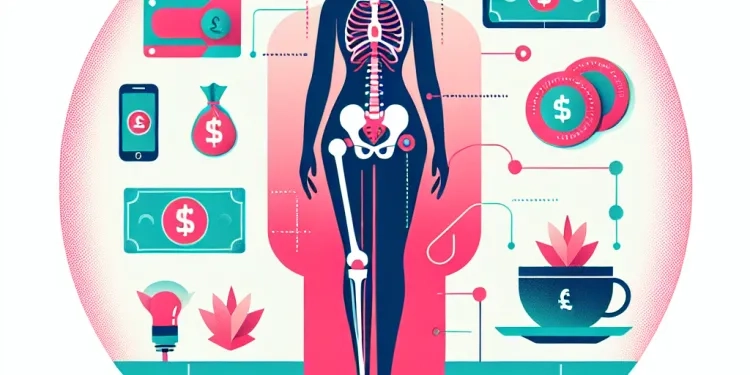
Find Help
More Items From Ergsy search
-
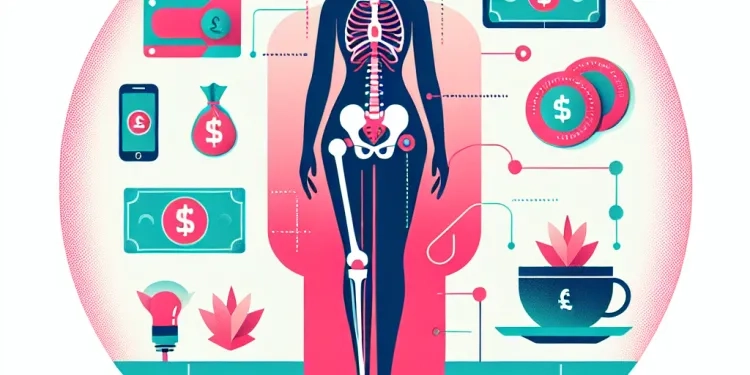
What are the risks associated with hip replacement surgery?
Relevance: 100%
-
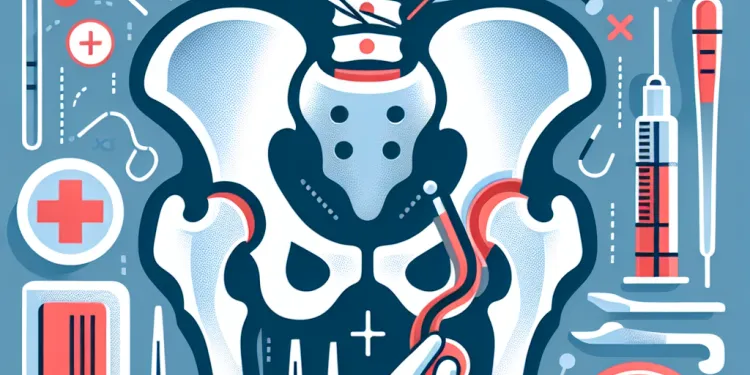
What is minimally invasive hip replacement surgery?
Relevance: 89%
-
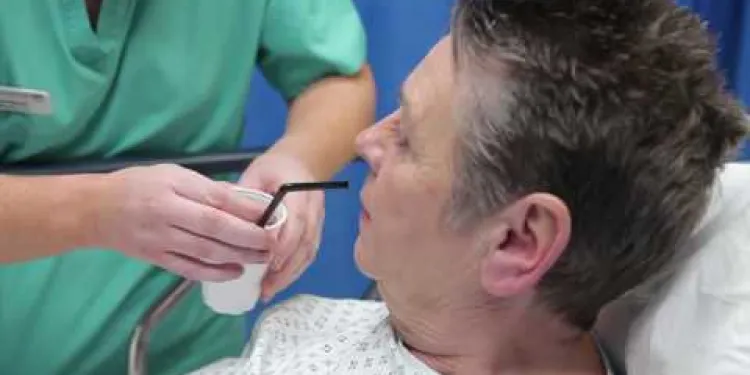
Hip replacement
Relevance: 87%
-

How do I prepare for hip replacement surgery?
Relevance: 84%
-

How much does hip replacement surgery cost in the UK?
Relevance: 84%
-

How long does a hip replacement surgery take?
Relevance: 83%
-

Total hip replacement
Relevance: 83%
-

Do I need a Hip Replacement?
Relevance: 83%
-

What is a hip replacement?
Relevance: 83%
-

Total Hip Replacement
Relevance: 82%
-

What type of anaesthesia is used during hip replacement surgery?
Relevance: 80%
-
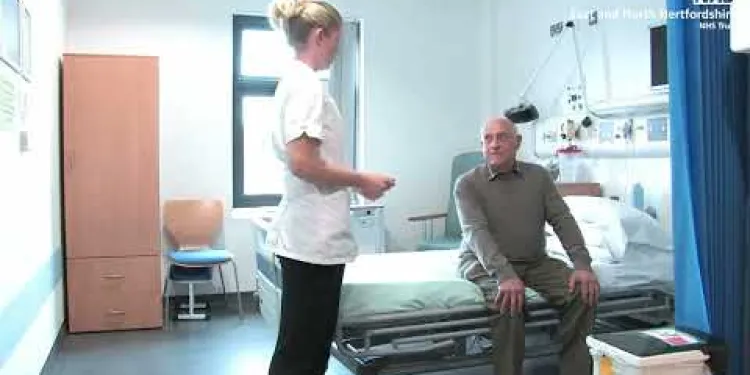
A journey to hip surgery
Relevance: 76%
-

Total hip replacement at Northumbria Healthcare
Relevance: 75%
-

Can both hips be replaced at the same time?
Relevance: 74%
-

What is the recovery time for a hip replacement?
Relevance: 72%
-

Will I need physical therapy after a hip replacement?
Relevance: 71%
-

Your anaesthetic choices for your planned hip or knee replacement surgery at the RUH.
Relevance: 70%
-
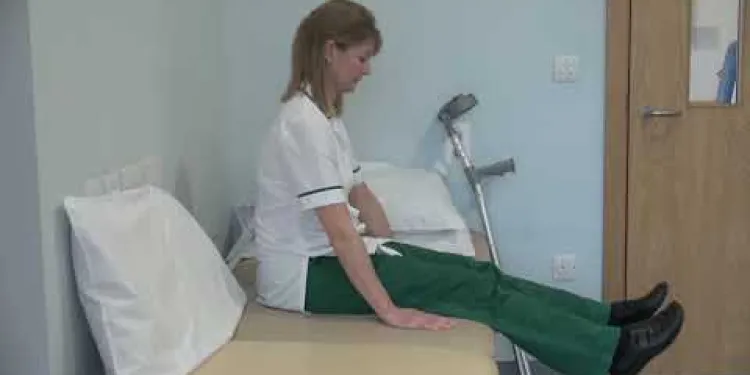
Hip replacement - getting into bed
Relevance: 68%
-

How long does it take to recover from a hip replacement operation?
Relevance: 61%
-
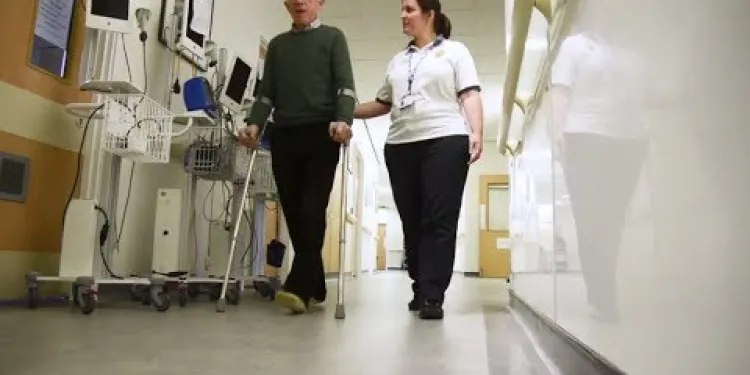
Having a hip replacement - Part Two: Recovery
Relevance: 60%
-
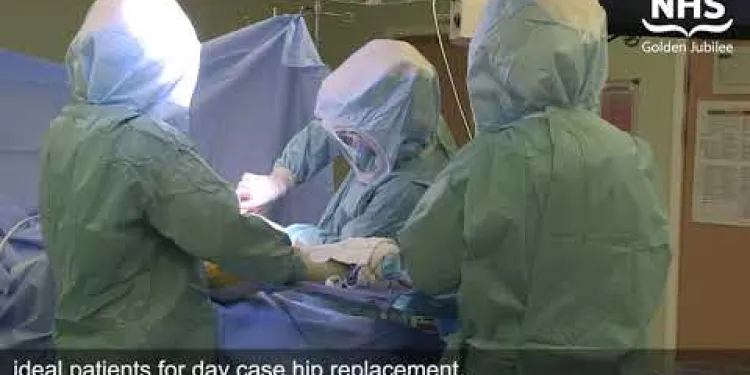
Same day discharge for NHS Golden Jubilee’s hip replacement patients
Relevance: 56%
-

Osteoarthritis of the Hip
Relevance: 56%
-
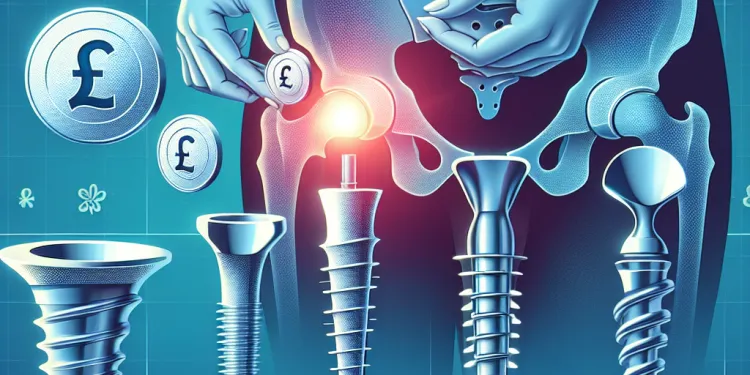
Are there different types of hip implants?
Relevance: 55%
-

Osteoarthritis of the Hip
Relevance: 52%
-
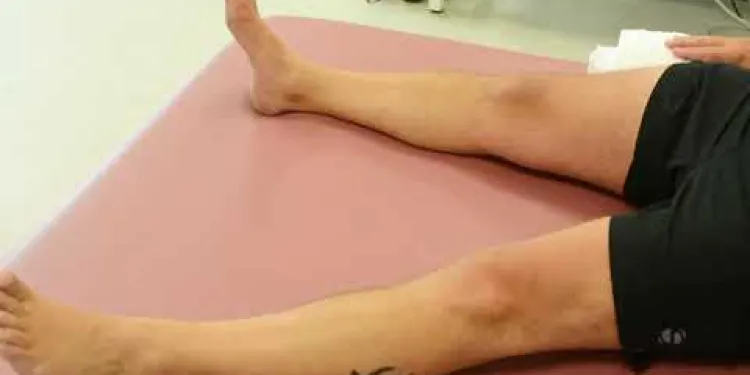
Joint School - Hip Exercises
Relevance: 50%
-

What can I expect during the first few weeks after hip replacement surgery?
Relevance: 49%
-

How long do hip replacement implants last?
Relevance: 49%
-

Enhanced Recovery - Hip
Relevance: 48%
-

Will I be able to return to normal activities after hip replacement?
Relevance: 47%
-

Knee replacement
Relevance: 46%
-

Total knee replacement
Relevance: 43%
-

Total Knee Replacement
Relevance: 42%
-
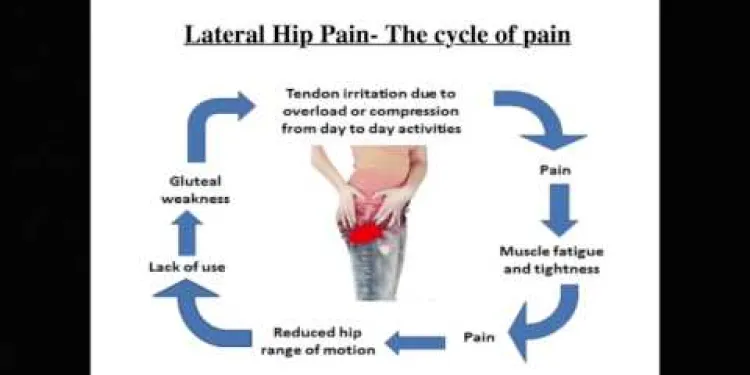
Advice - How to manage your lateral hip pain
Relevance: 36%
-
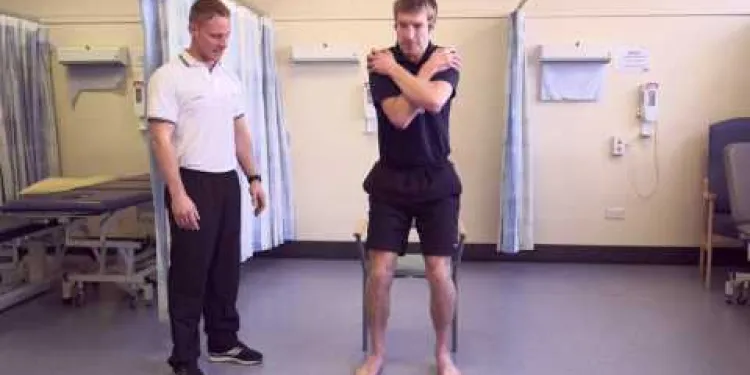
Exercises to help your lateral hip pain
Relevance: 36%
-
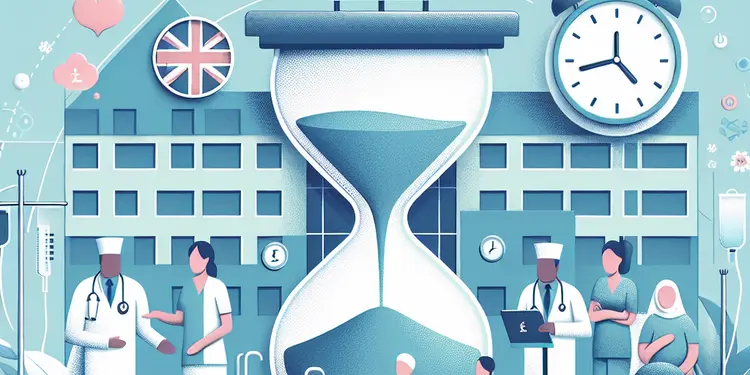
NHS Faces Backlash Over Record-Breaking Surgery Waiting Times
Relevance: 35%
-

Who is a candidate for a hip replacement?
Relevance: 34%
-

Can hormone replacement therapy (HRT) impact dementia risk?
Relevance: 34%
-
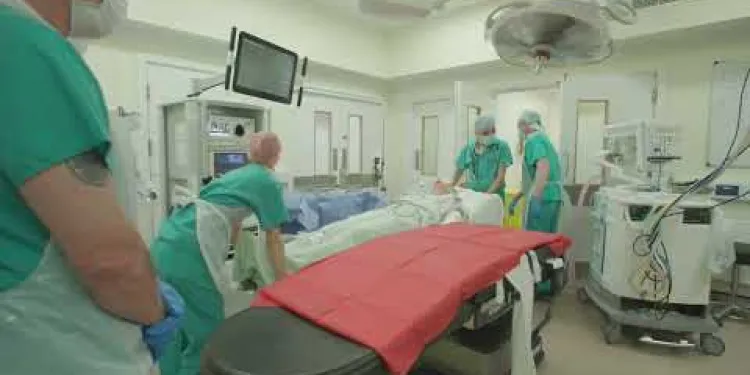
Prostate Surgery
Relevance: 33%
-

Cataract surgery can resolve life long short-sightedness?!
Relevance: 32%
-
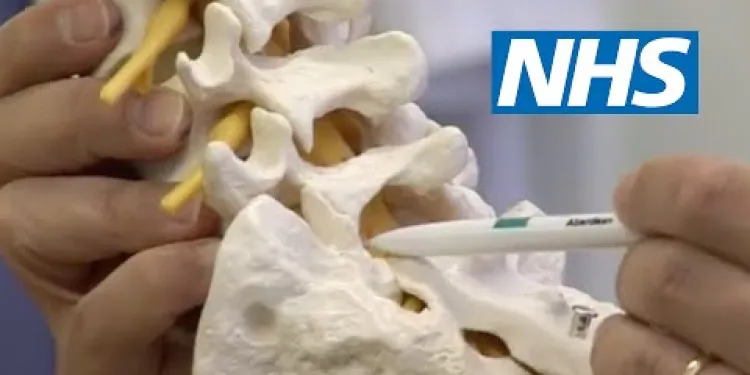
Lumbar surgery | NHS
Relevance: 31%
What are the Risks Associated with Hip Replacement Surgery?
Hip replacement surgery, also known as hip arthroplasty, is a common procedure performed to relieve pain and restore mobility in individuals with hip joint damage. While the surgery is generally safe and successful, like all surgeries, it carries some risks. Understanding these risks can help patients make informed decisions and take appropriate steps to minimize them.
Infection
Infection is a potential risk following any surgical procedure, including hip replacement surgery. Infections can occur at the incision site or deeper in the joint space. The rate of infection is relatively low, but when it happens, it can be serious. Signs of infection include redness, swelling, pain, and discharge at the incision site, as well as fever. Preventive measures, such as antibiotics, are usually administered to reduce this risk.
Blood Clots
Blood clots can form in the deep veins of the legs, a condition known as deep vein thrombosis (DVT). This can be a significant risk following hip replacement surgery due to reduced mobility during the recovery period. These clots can become life-threatening if they travel to the lungs, causing a pulmonary embolism (PE). To mitigate this risk, patients are often prescribed blood thinners and encouraged to move their legs soon after surgery, as well as perform specific exercises.
Dislocation
In the weeks immediately following hip replacement surgery, there is a risk of joint dislocation. This occurs when the ball slips out of the socket. Certain movements, like bending the hip too far, crossing the legs, or twisting the hip, increase the risk. Patients are advised to follow specific guidelines regarding movements and positions, and the use of supportive devices may be recommended to prevent dislocation.
Wear and Tear
Over time, the artificial hip joint can wear out. This is more likely to occur in younger, more active individuals who place greater demand on their replacement. The material of the artificial joint, whether metal, plastic, or ceramic, can influence the longevity of the joint. Persistent wear and tear may necessitate revision surgery, which is more complex than the initial procedure.
Nerve and Blood Vessel Damage
During hip replacement surgery, there is a small risk of damage to the surrounding nerves and blood vessels. This can lead to numbness or weakness in the leg. While such complications are rare, they can occur and are typically monitored closely post-surgery to manage them as effectively as possible.
Leg Length Discrepancy
Sometimes, after surgery, patients may feel that one leg is longer or shorter than the other. This can lead to discomfort or gait issues. Surgeons take care to ensure an even length, but some discrepancy can occur, which might be addressed through physical therapy or shoe inserts.
Conclusion
While hip replacement surgery is generally successful and improves quality of life, being aware of these risks can help individuals prepare appropriately and engage in preventive measures. Close communication with healthcare professionals, adherence to rehabilitation protocols, and monitoring for any unusual symptoms can significantly contribute to a smooth recovery.
What Are the Risks of Hip Replacement Surgery?
Hip replacement surgery is when doctors fix your hip to help with pain and movement. It's safe and helps many people, but just like any surgery, it has some risks. Knowing these risks helps people make smart choices and stay safe.
Infection
Infections can happen after any surgery, including hip surgery. They might occur where the cut was made or inside the hip. It doesn't happen often, but it can be serious. Signs of infection are redness, swelling, pain, and sometimes fever. Doctors use medicines called antibiotics to help stop infections.
Blood Clots
Blood clots can form in your legs after hip surgery. This can happen because you move less when recovering. If clots travel to your lungs, they can be very dangerous. Doctors give you medicine to prevent clots and tell you to move your legs and do exercises soon after surgery.
Dislocation
After surgery, the new hip joint might come out of place. This happens if the hip is moved too much or in the wrong way. You should be careful not to bend too far, cross your legs, or twist your hip. Your doctor will give you tips on how to move safely and might suggest special tools to help.
Wear and Tear
The new hip joint can wear out over time, especially if you are young and active. The joint can be made of metal, plastic, or ceramic, and some materials might last longer. If it wears out, you might need another surgery to fix it.
Nerve and Blood Vessel Damage
There's a small chance that nerves or blood vessels near your hip can be hurt during surgery. This might make your leg feel numb or weak. It's rare, but doctors watch for it and try to fix it quickly.
Leg Length Differences
Sometimes after surgery, one leg might feel longer or shorter than the other. This can be uncomfortable. Doctors try to make legs the same length, but if it's different, physical therapy or special shoe inserts can help.
Conclusion
Hip replacement surgery often works well and helps you feel better. Knowing about the risks means you can be ready and help prevent problems. Always talk to your doctor if something doesn’t seem right, and follow their advice for recovery.
Frequently Asked Questions
What are the general risks of hip replacement surgery?
The general risks of hip replacement surgery include infection, blood clots, hip dislocation, wear and tear of the joint over time, and rare complications such as nerve damage.
What is the risk of infection after hip replacement surgery?
The risk of infection after hip replacement surgery is relatively low, with rates generally reported between 0.5% and 2%.
Can I develop blood clots after hip replacement surgery?
Yes, blood clots can develop after surgery. This is why anticoagulants are often prescribed to reduce this risk.
What is the risk of hip implant dislocation?
The risk of hip implant dislocation is generally low, occurring in around 1% to 4% of patients. The risk can be higher in people with certain conditions or after trauma.
Can a hip replacement fail over time?
Yes, hip replacements can wear out or become loose over time, particularly with high levels of activity. This is why follow-up care is important.
Are there long-term risks associated with hip replacement?
Long-term risks include wear or loosening of the implant, chronic pain, or reactions to metal debris if a metal-on-metal implant is used.
What is the risk of nerve damage during hip replacement surgery?
Nerve damage is rare but can occur during hip replacement surgery, affecting sensation or movement in the leg.
How common is chronic pain after hip replacement?
Chronic pain affects a small percentage of patients, though most experience significant relief from their pre-surgery pain levels.
What steps can be taken to minimize risks of hip replacement?
Follow pre- and post-operative instructions carefully, take prescribed medications, attend physical therapy, and have regular follow-ups with your surgeon.
Are there specific risk factors that increase complications in hip replacement surgery?
Yes, factors include obesity, diabetes, immune disorders, smoking, and previous hip surgeries.
How does age affect the risks of hip replacement surgery?
Elderly patients might face higher risks due to other health conditions, but the procedure can still be successful with proper assessment and care.
Can existing health conditions increase the risk of complications?
Yes, conditions such as cardiovascular disease, diabetes, and a compromised immune system can increase risks.
Is metal toxicity a risk with hip replacement implants?
Metal toxicity is a potential risk with metal-on-metal implants, though modern materials and designs have reduced this concern.
What are the risks of not undergoing hip replacement when needed?
Risks include continued pain, reduced mobility, and a decline in overall quality of life.
Can allergic reactions occur with hip implants?
Allergic reactions to implant materials are rare but possible, particularly with certain metal alloys.
What is the risk of bone fracture during or after hip replacement surgery?
Bone fractures can occur during surgery, especially in patients with weak bones. They can also occur afterward, particularly with trauma.
Can hip replacements affect leg length?
There is a risk of leg length discrepancy post-surgery, but surgeons aim to minimize this risk during the procedure.
How can I reduce the risk of infection after hip replacement?
Maintain proper wound care, avoid exposure to infections, and follow any antibiotic regimens prescribed by your doctor.
What are the risks of anesthesia in hip replacement surgery?
Risks of anesthesia include allergic reactions, respiratory issues, and cardiovascular complications, although they are generally rare.
Is hip replacement surgery risky for smokers?
Smoking can increase risks of complications, such as impaired healing and higher infection rates, so cessation before surgery is recommended.
What can go wrong with hip replacement surgery?
Here are some things that might happen:
- Infection: The cut could get germs and make you sick.
- Blood Clots: Your blood could get sticky and block your veins.
- Pain: It might hurt after the surgery.
- Loose Hip: The new hip might not stay in place.
- Dislocation: The new hip might pop out of place.
- Legs Feel Different: One leg might feel longer or shorter.
To help understand this, you can:
- Use pictures or drawings.
- Talk to your doctor or nurse.
- Ask someone you trust to explain.
Having surgery to replace a hip can have risks. Some things that might happen are getting an infection, having blood clots, the new hip moving out of place, the hip joint getting old and worn out, and in rare cases, hurting a nerve.
If reading is hard, try using audiobooks or reading glasses. You can also ask someone to read with you or use websites with simpler words.
Can I get an infection after hip surgery?
After hip surgery, there's a small chance you could get an infection. This means germs might get into the area where the surgery was done.
Infections can make healing slower and can be serious, so it's important to take care.
To help stay safe, follow the doctor's advice about keeping the area clean. They might give you medicine to help stop infections, too.
The chance of getting an infection after getting a new hip is pretty small. It happens to about 1 or 2 people out of 100.
Can I get blood clots after hip surgery?
When you have hip surgery, sometimes blood clots can happen. A blood clot is like a lump of blood. It can block blood from flowing in your body.
Doctors can help stop blood clots. They might give you medicine or special socks to wear. These can help keep your blood moving.
If you feel pain, swelling, or see redness, tell your doctor. It's important to get help quickly.
Yes, you can get blood clots after an operation. This is why doctors give medicine to help stop blood clots.
What can go wrong with a new hip?
When someone gets a new hip, sometimes it can move out of place. This is called a dislocation.
Here are some tips to help understand this:
- Talk to your doctor. They can explain what to look out for.
- Use pictures or drawings to see how the new hip works.
- Ask questions. It's okay to ask for help if you don't understand something.
The chance of a hip implant slipping out of place is usually small. It happens to about 1 to 4 out of every 100 people. The risk can be higher for those with certain health problems or if they get hurt badly.
Can a new hip stop working after some time?
Yes, hip replacements can stop working well or come loose after a while, especially if you move around a lot. This is why it is important to see the doctor for check-ups.
What are the long-term problems with getting a new hip?
Over time, the implant might wear out or become loose. This can cause long-lasting pain. If the implant is made of metal, some people might have a bad reaction to tiny bits of metal.
What are the chances of hurting a nerve during hip surgery?
Hip surgery is when a doctor fixes or replaces a hip. Sometimes, a nerve can get hurt during this surgery. This is not common, but it can happen.
Nerves are like wires in your body that help you feel things and move. When a nerve is hurt, it might make you feel tingles, pain, or make it hard to move.
The doctor will be very careful to keep nerves safe during surgery.
If you have questions, you can talk to your doctor. They will explain what happens in surgery.
Using pictures or videos can help you understand better. You can ask for them if you like!
Nerve problems during hip surgery do not happen often, but they can happen. This might change how your leg feels or moves.
How often do people still feel pain after a hip replacement?
Some people still have pain after surgery. But most people feel much better than before the surgery.
How can we make hip replacement safer?
Here are some ways to help keep safe during hip replacement:
- Talk to your doctor. Ask lots of questions.
- Eat healthy food. It helps your body heal.
- Exercise gently. It makes your legs strong.
- Stop smoking. It helps your body recover.
- Go to all your doctor appointments.
- Ask for help from family or friends.
You can use picture charts to understand better. Ask a doctor to show you how the surgery works with simple words and drawings.
Make sure you follow all the instructions given to you before and after your surgery. Take your medicine as the doctor told you. Go to physical therapy sessions. Visit your surgeon regularly for check-ups.
What can make hip replacement surgery risky?
Yes, things like being very overweight, having diabetes, problems with the immune system, smoking, and having hip surgery before can be important factors.
Does getting older make hip surgery riskier?
Older people might have more risks because they could have other health problems. But, with the right check-ups and care, the procedure can still work well for them.
Can health problems make it more dangerous?
If someone is already sick, like having asthma or diabetes, it might be easier for them to get more sick from something else.
It's important to talk to a doctor if you have health problems. They can help you stay safe and healthy.
Some things that might help are:
- Taking medicine on time
- Keeping doctor's appointments
- Asking for help if you don't feel well
Yes, some health problems can make risks higher. These include heart problems, diabetes, and a weak immune system.
Can hip replacement metals make us sick?
When someone gets a hip replacement, a doctor puts a new hip joint in their body. Sometimes these new hips are made of metal.
This metal might go into the body and make some people feel unwell. But doctors check to make sure the metal is safe for most people.
If someone is worried about feeling sick from a new hip, they can talk to their doctor. The doctor can help explain and check if everything is okay.
Metal can be bad for your body if you have a certain type of implant. These are called metal-on-metal implants. But don't worry, new implants are made better so this is less of a problem now.
What can happen if you don't get a hip replacement when you need one?
If you need a new hip and don't get one, it can cause problems. Here is what might happen:
- Your hip can hurt a lot.
- You might find it hard to walk or move around.
- You could feel tired because moving is hard.
- Your hip could get even more damaged.
If you have trouble reading, ask someone to help you. You can also use things like audiobooks or read with bigger letters.
Risks are things that can happen and make things worse.
These risks are:
- Still having pain
- Not being able to move as well
- Life not being as good anymore
If you find this hard to read, you can try listening to the words instead. For help, you can use tools like audiobooks or text-to-speech apps.
Can hip implants cause allergies?
Sometimes, people can have allergic reactions to the materials used in implants. This doesn't happen often, especially with some metal mixes.
Can my bone break during or after a hip replacement surgery?
Bones can break during surgery. This happens more if the bones are weak. Bones can also break after surgery if something hits or hurts them.
Can hip replacements change how long your leg is?
Sometimes, after surgery, one leg might be longer or shorter than the other. Doctors try very hard to stop this from happening when they do the operation.
How can I stop getting an infection after a hip replacement?
After a hip operation, it's important to stay healthy and safe. Here are some easy tips:
- Wash Hands: Keep your hands clean. Use soap and water.
- Keep the Wound Clean: Check your hip for any redness or swelling. Keep it clean and dry.
- Take Medicine: Listen to your doctor. Take any medicine they give you.
- Rest: Try not to do too much. Let your body heal.
- Eat Healthy: Eat fruits and veggies. They help you get better.
If you need help, ask a nurse or a doctor. They know how to keep you safe.
Take care of your wound by keeping it clean and dry. Stay away from sick people. If your doctor gives you medicine, make sure you take it as told.
What are the dangers of using medicine to make you sleep in hip surgery?
When you have hip surgery, doctors give you medicine to make you sleep. This helps so you don't feel pain. But, there can be some dangers with this medicine.
Some people might feel sick after, or have a headache. Sometimes, it can make it hard to breathe easily.
It is important to talk to your doctor. They can explain what might happen and how they will keep you safe.
Using a checklist or asking someone to go with you can help you understand better. Ask questions if you don't understand something.
When you have anesthesia, there are some risks. These can be:
- You might be allergic to it. This is when your body does not like it and reacts badly.
- It might be hard to breathe.
- There could be problems with your heart or blood.
But don't worry too much, these problems do not happen often.
If you want to understand more, you can ask your doctor or look at simple guides. You can also use tools like picture cards to help you know what will happen.
Is it dangerous for people who smoke to have hip surgery?
If someone smokes, having hip surgery can be more risky. Smoking can make healing slower and cause problems.
If you smoke and need hip surgery, try to talk with a doctor for advice. They can help you stay safe.
It might be good to use tools that can help you stop smoking, like nicotine patches or support groups.
Smoking is not good for your health. It can make it harder for your body to heal and can cause more infections. It is a good idea to stop smoking before having surgery.
Useful Links
This website offers general information and is not a substitute for professional advice.
Always seek guidance from qualified professionals.
If you have any medical concerns or need urgent help, contact a healthcare professional or emergency services immediately.
Some of this content was generated with AI assistance. We’ve done our best to keep it accurate, helpful, and human-friendly.
- Ergsy carfully checks the information in the videos we provide here.
- Videos shown by Youtube after a video has completed, have NOT been reviewed by ERGSY.
- To view, click the arrow in centre of video.
- Most of the videos you find here will have subtitles and/or closed captions available.
- You may need to turn these on, and choose your preferred language.
- Go to the video you'd like to watch.
- If closed captions (CC) are available, settings will be visible on the bottom right of the video player.
- To turn on Captions, click settings .
- To turn off Captions, click settings again.
More Items From Ergsy search
-

What are the risks associated with hip replacement surgery?
Relevance: 100%
-

What is minimally invasive hip replacement surgery?
Relevance: 89%
-

Hip replacement
Relevance: 87%
-

How do I prepare for hip replacement surgery?
Relevance: 84%
-

How much does hip replacement surgery cost in the UK?
Relevance: 84%
-

How long does a hip replacement surgery take?
Relevance: 83%
-

Total hip replacement
Relevance: 83%
-

Do I need a Hip Replacement?
Relevance: 83%
-

What is a hip replacement?
Relevance: 83%
-

Total Hip Replacement
Relevance: 82%
-

What type of anaesthesia is used during hip replacement surgery?
Relevance: 80%
-

A journey to hip surgery
Relevance: 76%
-

Total hip replacement at Northumbria Healthcare
Relevance: 75%
-

Can both hips be replaced at the same time?
Relevance: 74%
-

What is the recovery time for a hip replacement?
Relevance: 72%
-

Will I need physical therapy after a hip replacement?
Relevance: 71%
-

Your anaesthetic choices for your planned hip or knee replacement surgery at the RUH.
Relevance: 70%
-

Hip replacement - getting into bed
Relevance: 68%
-

How long does it take to recover from a hip replacement operation?
Relevance: 61%
-

Having a hip replacement - Part Two: Recovery
Relevance: 60%
-

Same day discharge for NHS Golden Jubilee’s hip replacement patients
Relevance: 56%
-

Osteoarthritis of the Hip
Relevance: 56%
-

Are there different types of hip implants?
Relevance: 55%
-

Osteoarthritis of the Hip
Relevance: 52%
-

Joint School - Hip Exercises
Relevance: 50%
-

What can I expect during the first few weeks after hip replacement surgery?
Relevance: 49%
-

How long do hip replacement implants last?
Relevance: 49%
-

Enhanced Recovery - Hip
Relevance: 48%
-

Will I be able to return to normal activities after hip replacement?
Relevance: 47%
-

Knee replacement
Relevance: 46%
-

Total knee replacement
Relevance: 43%
-

Total Knee Replacement
Relevance: 42%
-

Advice - How to manage your lateral hip pain
Relevance: 36%
-

Exercises to help your lateral hip pain
Relevance: 36%
-

NHS Faces Backlash Over Record-Breaking Surgery Waiting Times
Relevance: 35%
-

Who is a candidate for a hip replacement?
Relevance: 34%
-

Can hormone replacement therapy (HRT) impact dementia risk?
Relevance: 34%
-

Prostate Surgery
Relevance: 33%
-

Cataract surgery can resolve life long short-sightedness?!
Relevance: 32%
-

Lumbar surgery | NHS
Relevance: 31%


